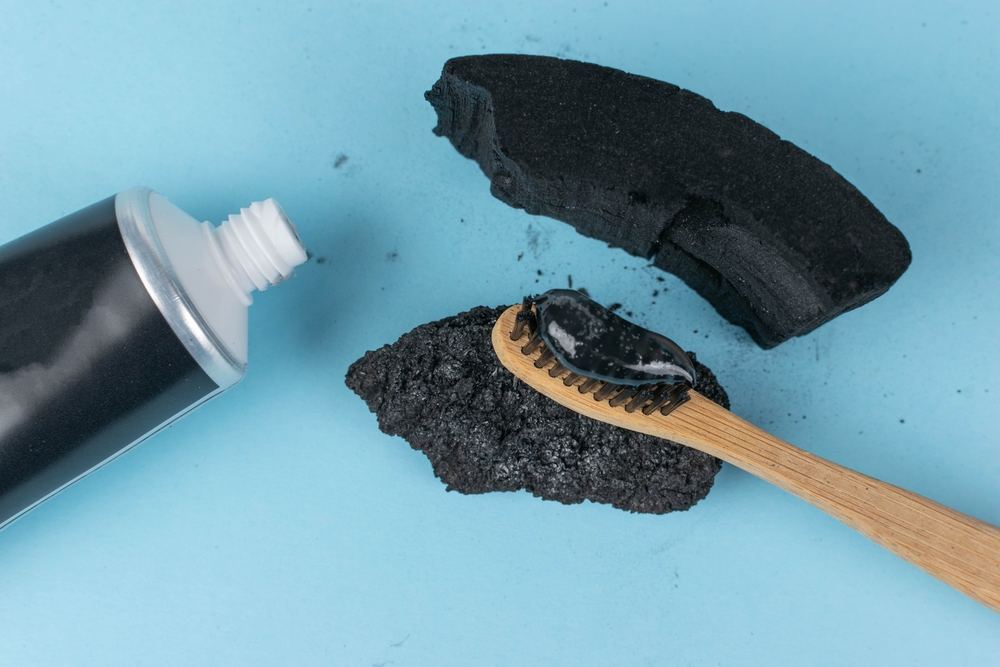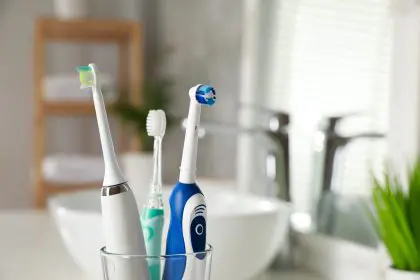Medical researchers note a significant surge in activated charcoal’s popularity, with the ingredient appearing in everything from face masks to toothpaste. This centuries-old substance, traditionally used for medical emergencies, now promises benefits ranging from brighter teeth to clearer skin. But medical experts emphasize the importance of understanding both its proven abilities and potential risks.
What happens when charcoal meets your skin
The beauty industry markets activated charcoal as a powerful purifier for your skin. Its molecular structure resembles a microscopic sponge, theoretically drawing out impurities from your pores. However, dermatologists reveal an unexpected twist: while charcoal can absorb toxins, it might also trap beneficial ingredients your skin needs.
Recent studies from leading skincare research centers show that charcoal’s effectiveness often depends more on its companion ingredients. For instance, when combined with clay in face masks, the clay often provides more benefits than the charcoal itself.
The dark side of teeth whitening
Dental professionals express growing concern about the trend of charcoal-based tooth products. While initial results might seem promising, long-term effects tell a different story. The abrasive nature of charcoal particles can gradually wear down tooth enamel – damage that proves irreversible.
More troubling still, research indicates that some charcoal residue may become permanently trapped in dental work, leading to persistent discoloration. Additionally, many charcoal toothpaste products lack fluoride, a crucial ingredient for preventing tooth decay.
The detox debate unraveled
Medical centers worldwide recognize activated charcoal’s role in emergency poison treatment, but its everyday detox claims require closer examination. Emergency room physicians regularly use charcoal to treat specific types of poisoning, yet research shows that casual consumption might do more harm than good.
The problem lies in charcoal’s inability to discriminate between harmful and beneficial substances. Studies reveal that it can bind to essential nutrients and medications, potentially interfering with daily vitamins and minerals, birth control effectiveness, heart medication absorption, diabetes medication function, and antidepressant efficacy.
Water filtration facts and fiction
Environmental scientists confirm activated charcoal’s ability to improve water taste and remove certain contaminants. However, its limitations prove significant. Water quality experts point out that charcoal filters cannot eliminate all bacteria types and may remove beneficial minerals. Additionally, they require frequent replacement to prevent bacterial growth, don’t protect against all heavy metals, and need proper maintenance to remain effective.
Beyond the basics: surprising applications
Recent medical studies explore activated charcoal’s potential benefits for various conditions. While some applications show promise, others lack substantial evidence. Research indicates possible benefits for reducing gas and bloating, though results vary significantly among individuals. Despite popular claims about hangover prevention, clinical trials show limited effectiveness when used after alcohol consumption. Early studies suggest potential benefits for cholesterol management, but medical professionals emphasize the need for more research before making definitive claims.
Understanding the safety spectrum
While generally considered safe for occasional use, medical professionals report several important considerations. Immediate effects often include dehydration risks, possible constipation, black stool coloration, and nausea in some individuals. Long-term concerns focus on nutrient absorption issues, medication interference, dental enamel erosion, and potential respiratory problems from powder inhalation.
Making informed decisions
Healthcare providers emphasize the importance of considering your medical history before incorporating activated charcoal products into your routine. Those taking regular medications should consult their healthcare providers about potential interactions. The quality of charcoal products varies significantly in the market, making it crucial to research manufacturers and choose regulated products. Most importantly, consumers should carefully weigh whether the proposed benefit outweighs potential risks for their specific situation.
The future of charcoal in wellness
Medical researchers continue exploring activated charcoal’s potential applications beyond current uses. Ongoing studies examine its role in environmental applications and refined medical emergency protocols. Scientists focus on developing methods for targeted toxin removal, while sustainability experts work on improving production methods to meet growing demand without compromising quality.
Expert recommendations
Healthcare professionals advocate for a cautious approach to charcoal use in daily wellness routines. When it comes to skincare, experts recommend limiting application to once weekly and paying close attention to any signs of irritation. Dental professionals stress the importance of consulting with your dentist before introducing charcoal products into your oral care routine, as the long-term effects on enamel remain a concern.
Internal use demands particular attention, with medical experts unanimously recommending professional guidance before consuming any charcoal products. In emergency situations, activated charcoal treatment should remain strictly under medical supervision, as improper use can interfere with other necessary treatments.
Finding balance in the black gold rush
The current enthusiasm for activated charcoal often overshadows its scientifically proven capabilities. Understanding these limitations helps consumers navigate through marketing claims and make educated choices about incorporating this ancient remedy into modern wellness routines.
Medical experts emphasize that activated charcoal works most effectively as part of a thoughtful approach to health rather than a standalone solution. While ongoing research may uncover new applications, current evidence suggests that moderation and professional guidance remain essential for using this powerful substance safely and effectively.
The future outlook
As research continues to evolve, our understanding of activated charcoal’s potential grows more nuanced. Scientists anticipate discovering new applications while better defining its limitations. This balanced approach to studying activated charcoal promises to reveal more about its proper place in modern health and wellness practices.
For now, consumers should approach activated charcoal products with informed caution, understanding that traditional uses might prove more reliable than trending applications. The key lies in separating evidence-based benefits from marketing hype, ensuring that this powerful substance serves its proper role in contemporary health practices.
Remember that while activated charcoal offers genuine benefits in specific applications, it functions best as one component of a comprehensive approach to health and wellness, not as a miracle cure for all ailments. As research advances, we may discover new uses for this ancient remedy, but thoughtful application and professional guidance remain paramount for optimal results.














